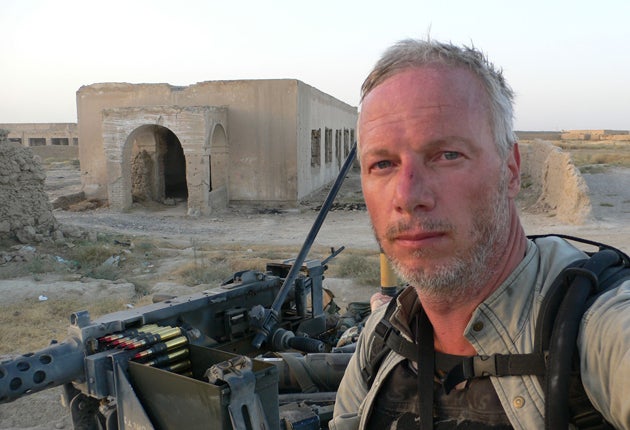Going into a danger zone? Take a GPS tracker in your mobile
In a hostage situation, it's reassuring that people know where you are, says Matthew Bell

It's the phone call the family of any international journalist dreads: the unfamiliar voice informing them their loved one is missing. For the family of Asad Qureshi, a British documentary-maker declared missing while searching for Taliban leaders in North Waziristan, the call came last week. The Foreign Office is now making urgent inquiries into his whereabouts.
It is for foreign workers like Mr Qureshi, or Dispatches filmmaker Sean Langan, who was kidnapped by the Taliban in 2008, that a piece of mobile phone software has been invented which, once installed in an ordinary phone, can pinpoint its owner's location to precise co-ordinates anywhere in the world. Although any mobile can be traced to the nearest mast, the accuracy will only at best be within a few hundred metres. But with this software, precise co-ordinates can be translated on to a map using satellite mapping programs to give an immediate impression of the user's environment. News organisations are among a growing number of firms with employees in dangerous areas which are subscribing to the services of Blue Client Risk Management, the Reading-based company that has developed the technology.
Originally devised by two policemen with experience in tracing missing people, and subsequently used by the military and government agencies, Blue CRM's software is now available to anyone entering a danger zone. The advantage is it can be installed in a regular mobile phone, making it a discreet tool in a hostile situation. This has only been possible since the summer of 2007, when manufacturers began routinely building Global Positioning Systems (GPS) into mobile phones.
The software works by capturing the location of the phone via GPS, and beaming it to Blue CRM's Reading headquarters over the mobile network. If the phone is out of range, a two-way satellite link can find it. Staff monitor their clients' whereabouts 24 hours a day. Each mobile sends its co-ordinates at regular intervals, perhaps once an hour, but the frequency can be increased if necessary.
Tira Shubart, a freelance news producer for agencies including the BBC, used the device in Iraq this winter. "The tracker provides a huge amount of reassurance that, back home, they know exactly where you are. It doesn't mean you take more risks, but there's one more safety device there. There is even an SOS button you can hit in an emergency. If you need them, a team of ex-special forces guys are on stand-by."
Sky, CNN, Channel 4 and the BBC are among news organisations using the technology, which helps demonstrate to their insurers that they are taking due care of their employees. A health and safety officer at one news organisation, who wishes not to be named, welcomed the advancements in technology. "We already provide training, but we are always having to think about what happens if something goes wrong," she said. "Foreign correspondents, in the excitement of a story, can fail to maintain contact with the desk. Taking the responsibility to get in touch out of the hands of the individual, and out of our hands at base, and into the hands of a dedicated monitoring organisation, is clearly the next step."
A device already in use is the Twig locator – a small black box that acts as a global panic button, and sends an email with its GPS co-ordinates to a prearranged list of recipients if a button is pressed. But some correspondents are reluctant to carry a suspicious looking box that could endanger them further in a hostage situation.
For a freelance such as Ms Shubart, Blue CRM's service is attractive. "One advantages is that it's relatively inexpensive to install. It costs about £100 initially and then £10 a day while you're in the field."
Maintaining a dialogue with headquarters is important, especially to avoid false alarms, says William Parry, the managing director of Blue CRM. "The point of our service is real-time tracking. It is having a timely and accurate last-known location." The service can also warn users if they are likely to encounter trouble.
As with all apparently life-changing technologies, mundane practical considerations remain, such as the need to keep the phone charged. However, says Mr Parry, they can find a phone even when it is switched off or if the SIM card is taken out and changed. Only if the battery is removed does the system fail.
Being tracked may not appeal to foreign correspondents keen to prove their bravery. And no amount of technology will protect clients once separated from their phones. The ultimate solution, said the health and safety officer, is to microchip journalists. "It's discreet, reliable and a hostage-taker would never find it," she says.
Join our commenting forum
Join thought-provoking conversations, follow other Independent readers and see their replies
Comments